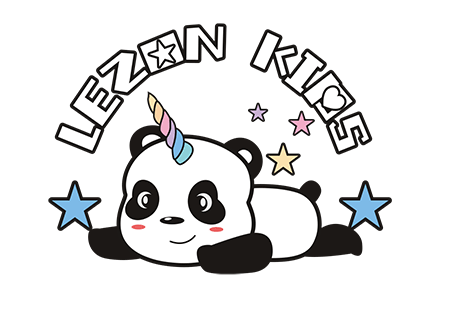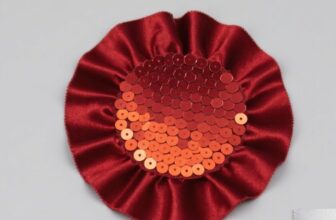How small-batch children’s clothing brands break through with LEZONKIDS?
Minimum order quantity: 100 pieces・Mixed sizes per style
When a children’s clothing design studio received 300 pre-orders for its first original sweatshirt. The founder faced a dilemma: traditional factories insisted on a minimum order of 500 pieces, risking 200 unsold items; while hiring a small workshop for outsourcing worried about substandard quality. This is a common dilemma faced by countless small-batch children’s clothing brands: a formidable gap between the rigidity of the supply chain and the flexibility of market demand. LEZONKIDS offers a novel solution to this supply-demand contradiction through its flexible production system with a minimum order of 100 pieces.
Industry dilemma: a death cycle of high barriers to entry and high risks

The unique ecosystem of the children’s clothing industry makes the road to success for small brands fraught with challenges. Children’s rapid growth leads to a short clothing lifecycle, and the vastly varying body shapes of children aged 0-12 necessitates the need to cover a wider range of sizes, yet accurately predicting the actual demand for each size segment is difficult. However, the traditional factory partnership model completely disregards these market characteristics.
The rigid shackles of traditional factories
The terms of cooperation with traditional factories are like a set of rigid constraints: the minimum order quantity for a single style is generally 300-500 pieces, and production is mandated to be balanced across S/M/L sizes. This “one-size-fits-all” model stems from factories’ pursuit of scaled production efficiency. Switching sizes and production lines increases costs. So they prefer to let brands bear inventory risks in order to maintain standardized production.
A more insidious barrier to entry lies in the proofing process. With proofing fees of 800-1500 DOLLAR per piece, plus modification fees, small brands often invest thousands of yuan before a product even reaches the market. A maternity and baby blogger transitioned into creating original children’s clothing. Their first dress received 230 orders, but the factory insisted on a minimum order of 500 pieces. Ultimately, due to unsold stock, they accumulated 12,000 yuan in inventory and halted further development.
Contradictions intensify in the e-commerce era
The rise of e-commerce channels has exacerbated this conflict. Consumers are accustomed to rapid new product launches and personalized choices, forcing small brands to update 3-5 models per month to maintain their popularity. However, traditional factories have production cycles of over 45 days, and by the time a product reaches shelves, market trends have already shifted.
Even more brutally, e-commerce platforms’ traffic regulations require new products to show sales feedback within a short period of time, meaning small brands face the high risk of overproduction leading to unsold products. A 2023 children’s clothing industry report revealed that 68% of small brands experienced capital shortages due to initial overproduction, with 83% of these unsold products stemming from an imbalance in size ratios.
Icebreaking solution: Redefining the standards for small-order production

Faced with industry difficulties, the flexible production system built by LEZONKIDS achieved two key breakthroughs, completely reconstructing the production logic of small-batch children’s clothing.
100 pieces to open mixed code freedom
LEZONKIDS has lowered the minimum order quantity for each style to 100 pieces. A figure that reflects a deep understanding of the survival needs of small brands—100 pieces is just enough to cover initial market testing without creating excessive financial pressure. More importantly, these 100 pieces can be freely allocated in small/medium/large sizes, breaking the traditional factory’s mandatory “same size, same quantity” requirement.
The founder of a brand specializing in girls aged 3-6 did some calculations: In the past, to meet a minimum order of 500 pieces, they ordered 167 pieces each in sizes S, M, and L. As a result, size S was 40% unsold, and size L was severely out of stock. After switching to LEZONKIDS, they allocated 100 orders to 20 sizes S, 50 sizes M, and 30 sizes L, taking into account the high proportion of 4-5 year olds in their customer base. This boosted their inventory turnover rate to 91% during the initial sales period.
The core of supporting mixed-size orders is the intelligent production scheduling system developed by LEZONKIDS. Traditional factories struggle to accommodate mixed sizes, as different size segments require adjustments to cutting dimensions and sewing parameters, impacting efficiency. This system automatically generates optimal production scheduling, limiting size change losses to less than 3%, ensuring efficiency while providing brands with flexibility in size selection.
30-45 days fast delivery: a time revolution in the supply chain
In the children’s clothing industry, time is money. Seasonal designs featuring popular cartoon elements and holiday themes are extremely time-sensitive. LEZONKIDS has shortened its production cycle to 30-45 days, 40% faster than the industry average, allowing smaller brands to keep pace with the market.
This ultra-fast response capability stems from the synergy between dedicated assembly lines and modular production. LEZONKIDS has established a dedicated production line in its own factory. Staffing by 20 experienced seamstresses focused on handling small orders of 100-500 pieces. Each worker on this dedicated line is proficient in handling at least three different processes, significantly reducing handover time.
The modular production process breaks down the linear dependencies of traditional production. It transforms steps like fabric and accessories procurement, cutting, sewing, and quality inspection into parallelizable modules. Enabling real-time collaboration through a digital system. For example, while fabric is being sourced, the pattern maker can already design patterns for different sizes. While sewing is underway, quality inspection standards are simultaneously uploaded to the system. This parallel processing model compresses the traditional 65- day production cycle to 35 days.
The practice of a seasonal children’s clothing brand has proved its value: in early September, it received a request for the design of Halloween-themed sweatshirts. Through LEZONKIDS’s ultra-fast production, 500 pieces were completed and put into storage before October 10, catching up with the peak of Halloween pre-sales on e-commerce platforms. Sales in the first month exceeded 800 pieces. Similar products from competitors had long production cycles. And had missed the best sales period by the time they were put on the shelves.
Zero-cost trial-and-error system: full-link guarantee from design to sales
The most vulnerable stage for small brands is the transition from design to mass production. LEZONKIDS’s zero-cost trial-and-error system provides a safety cushion for this high-risk phase.
Free design: Visual confirmation to avoid implementation risks
The discrepancy between the design draft and the finished product is a major obstacle for many small brands during their first production. LEZONKIDS offers three free renderings to help brands eliminate visual discrepancies before mass production.
Brands only need to provide a design sketch or inspiration image, and LEZONKIDS’ designers will complete three versions of renderings in different styles within 72 hours, including front, side, and detailed enlargements. These renderings use 3D modeling technology to accurately reproduce the fabric texture, pattern placement, and craftsmanship details.
The founder of a designer brand shared: “In our initial design of the bear pattern. We discovered that it was positioned too low during the rendering stage. It would be blocked by the waist when actually worn. Timely adjustments avoided mistakes in mass production.” This visual confirmation mechanism minimizes the uncertainty of design implementation.
Case guidance: the breakthrough path of data witness
(Note: The following cases have been authorized by the customers and the brand names are kept anonymous)
STAR Children’s Products: Mixed-code strategy reduces inventory
“STAR” is an original children’s clothing brand established in 2023, specializing in fun printed T-shirts for children aged 3-8. Founder Ms. M, who previously worked in a traditional foreign trade factory, is well aware of the supply chain pain points faced by small brands. She partnered with LEZONKIDS early on, achieving a 30% inventory reduction in the first quarter through a mixed-stock strategy.
During the production of the first dinosaur print T-shirt, Ms. Wang, based on social media research, determined that parents of children aged 5-6 were most interested in the design. Instead of following the traditional even-size distribution model. She used LEZONKIDS’ mixed-size system to allocate the 100-piece order to the following:
- Small (ages 3-4): 15 pieces
- Size M (5-6 years): 60 pieces
- Large (7-8 years): 25 pieces
This precise matching yielded remarkable results: 89 pieces were sold in the first month. With the remaining 11 all in size S, resulting in an in-stock rate of just 11%, well below the industry average of 40%. More importantly, the rapid sell-out of the size M allowed her to place an additional order for 200 pieces, capitalizing on the market’s enthusiasm.
“In the past, at children’s clothing factories, we always produced according to fixed ratios, regardless of market demand,” Ms. M explained. “LEZONKIDS allows me to choose sizes like ordering dishes. I can produce more of the sizes that sell well and less of the sizes that are uncertain. This is the flexibility a small brand should have.”
Cotton bud brand: 0 cost trial and error to improve survival rate
Another example comes from the organic cotton brand “Cotton Bud.” Using LEZONKIDS’ zero-cost trial-and-error system, they tested eight designs within three months, ultimately selecting three hits. Their new product survival rate reached 37.5%, compared to the industry average of only 15%.
Founder Ms. Li particularly mentioned the value of free samples: “We discovered problems with the fit of two designs during the sample stage. One had a neckline that was too narrow, and one had cuffs that were not properly tight. Only after timely adjustments were made could mass production begin. Otherwise, the consequences would have been disastrous.”
These cases demonstrate that the innovative vitality of small brands can only be truly unleashed when the production threshold is lowered and the cost of trial and error is reduced to zero. LEZONKIDS provides more than just production services. It also provides an ecosystem that allows small brands to safely experiment and iterate quickly.
Breakthrough Guide: Action Path for Small Brands
For small-batch children’s clothing brands in their early stages, achieving a breakthrough with LEZONKIDS requires three steps:
Accurately calculate code requirements
Through social media research, pre-sale testing, or data analysis of similar products, the target customer base’s age distribution is determined. Which is then converted into a production ratio of S/M/L sizes. The LEZONKIDS customer service team provides professional advice to help brands avoid subjective misjudgments.
Phased production
Initial production runs are limited to 100-200 pieces. Based on sales data, best-selling and slow-moving product segments are identified. And the ratio is dynamically adjusted during the second run. One baby and children’s brand has increased its inventory turnover rate from 58% to 89% through this “small steps, fast progress” approach.
Make good use of visual empowerment resources
Combining the white background images and detailed videos provided. By LEZONKIDS with scenario-based content creates a complete product display system on e-commerce platforms. Data shows that children’s clothing products that use both white background images. And detailed videos have a 42% higher conversion rate than products using only white background images.
In the children’s clothing industry, scale is no longer a prerequisite for survival; flexibility is the key to success. LEZONKIDS offers flexible production with a minimum order of 100 pieces, a rapid response time of 14-30 days. And zero-cost trial and error protection, opening the door to the market for small brands.
Upload your design now and receive three free renderings within 72 hours. After confirmation, receive a physical sample within seven days, and proceed to mass production upon satisfaction. The golden age of small-batch children’s clothing brands begins with this 100-piece order.









